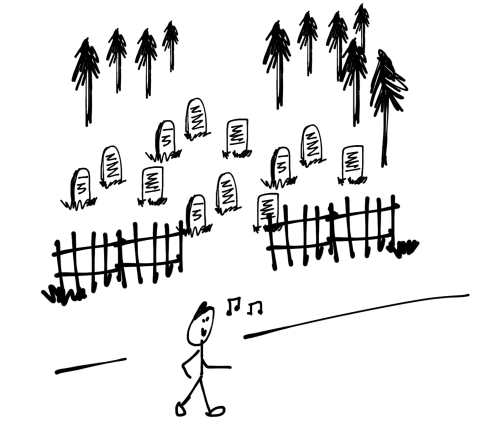Humanity’s greatest achievement may not be its technologies, its art, or even its capacity for love—it is its ability to lie to itself. In The Denial of Death, Ernest Becker reveals the unsettling foundation of our lives: everything we do, every accomplishment, every grand narrative we construct is an elaborate attempt to distract ourselves from one inescapable truth: we will die. And we know it.

The “immortality projects” Becker outlines are not distant academic concepts. They are the very essence of our daily lives, infiltrating how we dress, how we love, and how we perceive success. Consider marriage: a bond so sacred, it promises to transcend even death. “You complete me,” we say, not realizing it’s a cry against the void, a desperate plea to be remembered, to have mattered. Or take our endless chase for youth, sculpting our bodies to perfection, erasing wrinkles, dyeing hair, and freezing time. But no surgery can stop the decay. No cream can conquer entropy.
Then there is the accumulation of wealth—a currency we mistake for permanence. We etch our names onto buildings, imagining they’ll stand as monuments to our importance, yet even the tallest skyscraper will one day be dust. Ideologies, too, become masks for this fear. Whether in religion or politics, we cling to beliefs as if they are eternal truths, projecting our mortality into systems that outlive us. And perhaps the most uncomfortably universal project: children. How many parents see their offspring not as individuals but as extensions of their legacy, small flames to carry their name into the darkness?


Even suffering becomes an immortality project. We martyr ourselves to be remembered for our pain, to feel that our struggle was meaningful. But how many of us would find our “courage” faltering if we were honest about how small we truly are?
Becker forces us to confront this: how much of your identity would vanish if you stripped away these illusions? If you were to stand, naked and alone, before the reality of your finiteness, what would remain? Every human, from the mogul to the monk, from the artist to the accountant, is playing the same game: building sandcastles while the tide comes in.


Makeup may seem trivial in this context, but it too reflects our shared humanity. Every flick of eyeliner, every layer of foundation, every perfectly curated look is a small rebellion against decay. It is art we wear daily, a momentary triumph over impermanence. Yet even beauty, no matter how immortal it feels in the mirror, is fleeting.
So, ask yourself: what stories are you telling to shield yourself from the truth? What parts of your life are truly yours, and what parts are elaborate disguises for your fear of the inevitable? Are you brave enough to face what lies beneath?
